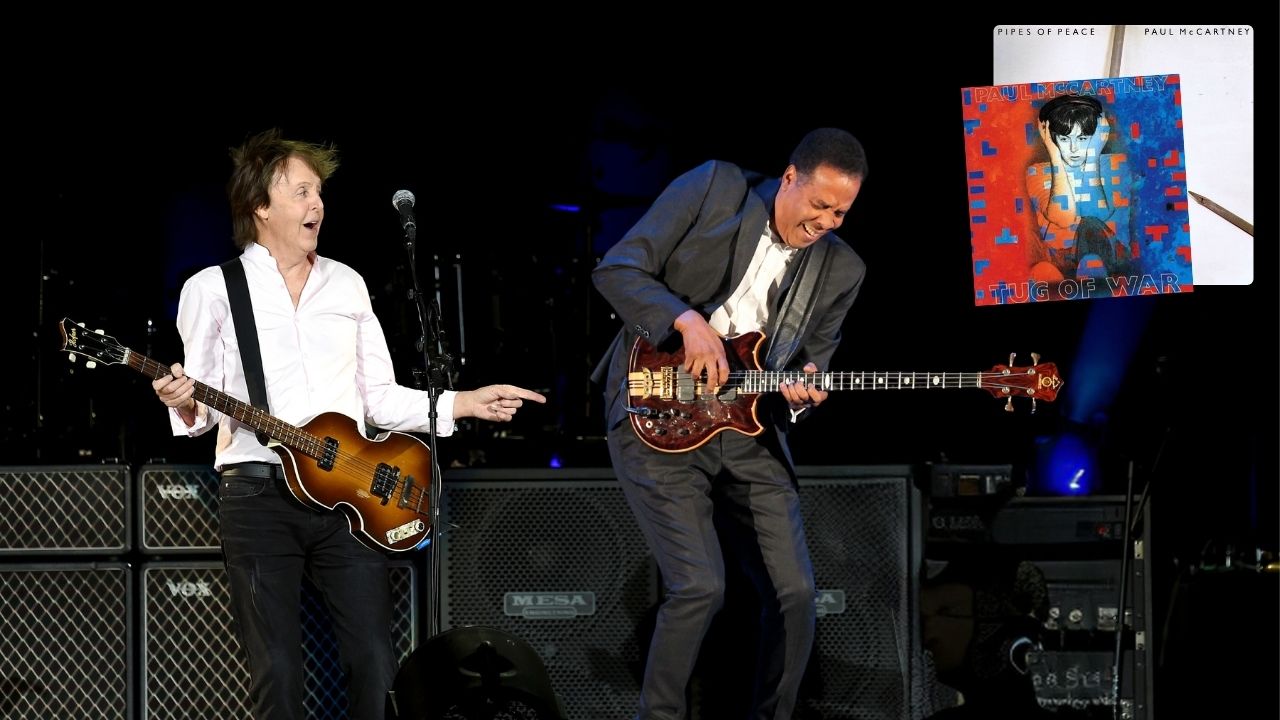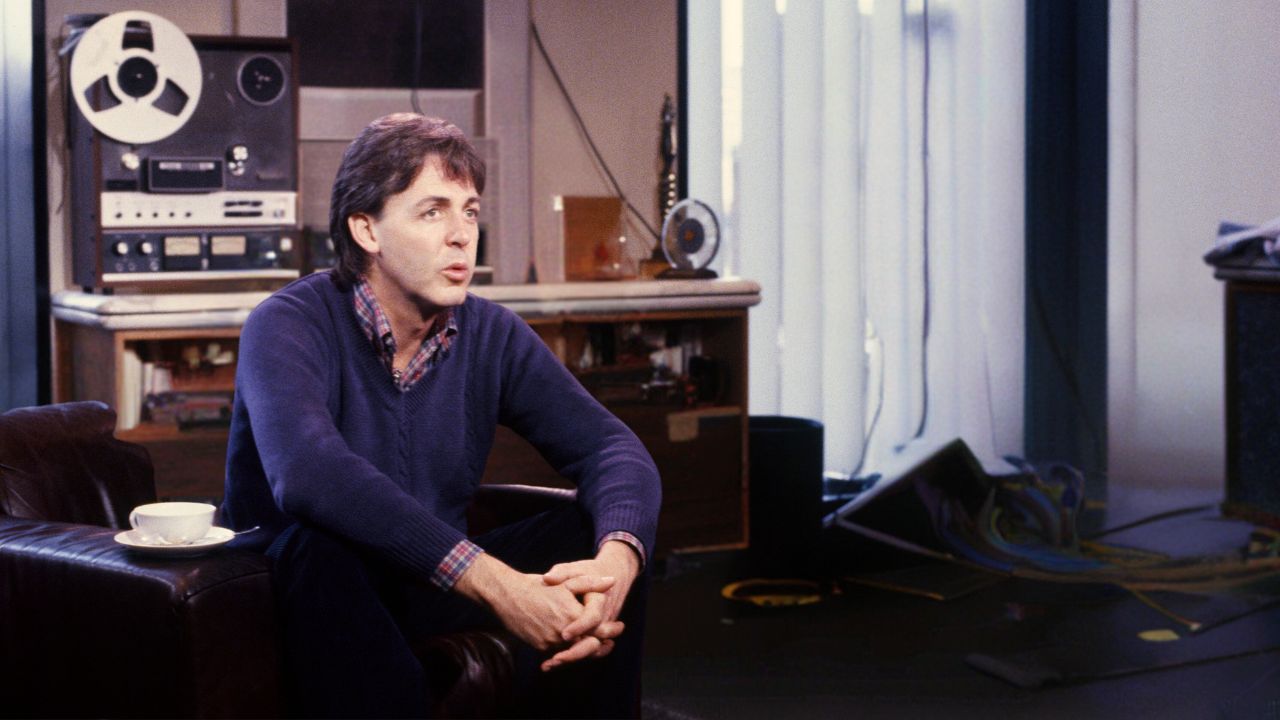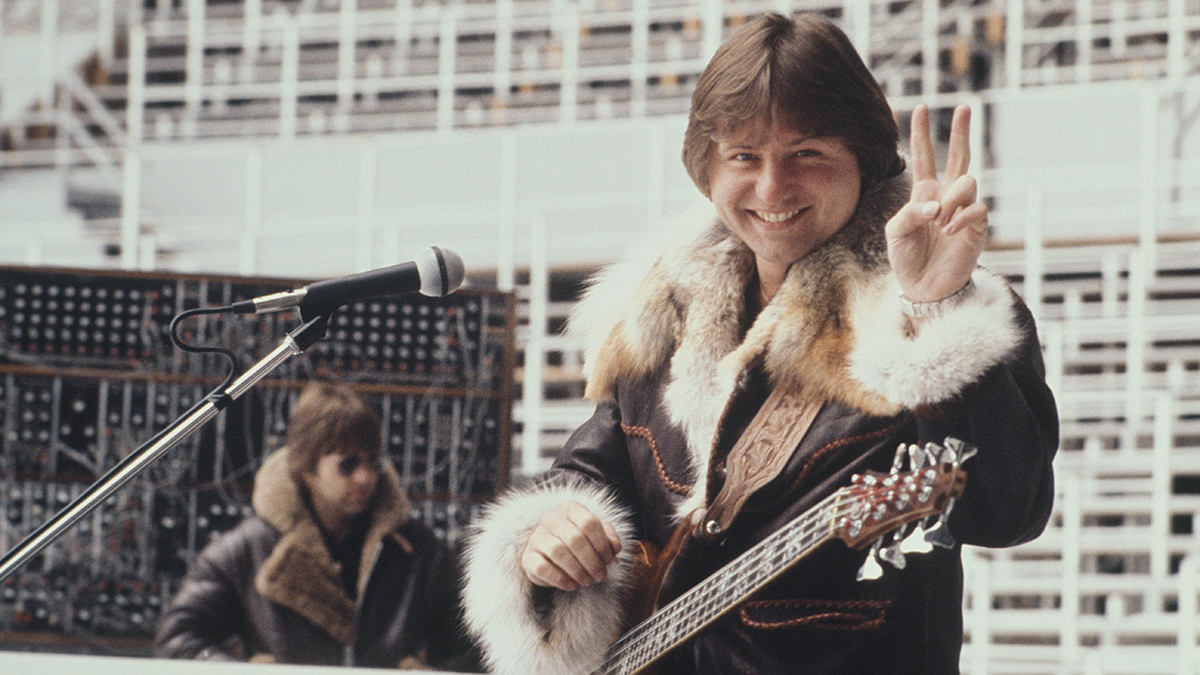When Stanley Clarke met Paul McCartney: “Paul asked me to show him how to slap!”
Stanley Clarke made a key assist on Paul McCartney's early-80s albums Tug of War and Pipes of Peace

Bass guitar heroes don’t get much bigger than Paul McCartney. Through his time with The Beatles, and his subsequent solo career, he's been pushing the boundaries of the instrument since the early 1960s, and was lauded as the third best bass player of all time in our poll.
After the Beatles split in 1970, McCartney went on to enjoy a hugely successful career with Wings, while also collaborating with the likes of Michael Jackson and Stevie Wonder on his early-‘80s solo albums Tug of War and Pipes of Peace. Yet for all his achievements to date, there was one bass player who he feared might still leave him starstruck.
“I’d always thought that some of these people were a bit big time, and I was always shy to play with them,” said McCartney in the 1983 edition of his fan club magazine, Club Sandwich. “People like Stanley Clarke, a lot of people, when you talked to them, went ‘Wow! Stanley!’ But, of course, he’s a nice fella, nice to talk to and nice to be with. Recording with him wasn’t as daunting as I’d thought.”

For Clarke, who was summoned to George Martin’s AIR Studios to work on McCartney’s Tug of War and Pipes of Peace, the sessions in Montserrat created an opportunity to collaborate with one of his heroes.
“Of all of the recordings I’ve played on, working with Paul McCartney was among the most memorable,” Clarke told BP. “We started jamming on a groove, which made it onto the album as Hey Hey. Paul graciously gave me a co-writing credit, which he didn't have to do. So I had co-written a song with Paul McCartney. It’s still a thrill to see my name next to his in the song book.”
That McCartney would vacate the bass chair says a lot about his admiration for Clarke, who’d caught the bass world’s imagination with his solo album, School Days. McCartney went on to say “I admitted to him, ‘Hey, I’m trying to steal your licks, man!’ “He said, ‘Oh, you’ve got licks of your own.’ I decided not to steal his licks after all; he was right. He’s got his style; I’ve got my style.”
Remastered in 2015, Hey Hey gets off to a bright start, before Clarke steps forward with a jazz-inflected interlude. “Paul wanted a different bass sound on these records, which is why he had George Martin contact me. He asked me to show him how to slap! And I brought him a few basses. I ended up having a really good time because Paul is just a cool guy.”
All the latest guitar news, interviews, lessons, reviews, deals and more, direct to your inbox!
Clarke also recorded on The Pound is Sinking and Somebody Who Cares from McCartney's 1981 album, Tug of War.
“Paul definitely had an influence on my bass playing, especially as I hit my teens and the Beatles’ records became more adventurous. As a Beatles fan one of my favourite tracks is Come Together, because the bassline is the whole song. That was part of my inspiration to write School Days, so I could just play the bassline and people would hear a whole song.”

Nick Wells was the Editor of Bass Guitar magazine from 2009 to 2011, before making strides into the world of Artist Relations with Sheldon Dingwall and Dingwall Guitars. He's also the producer of bass-centric documentaries, Walking the Changes and Beneath the Bassline, as well as Production Manager and Artist Liaison for ScottsBassLessons. In his free time, you'll find him jumping around his bedroom to Kool & The Gang while hammering the life out of his P-Bass.
